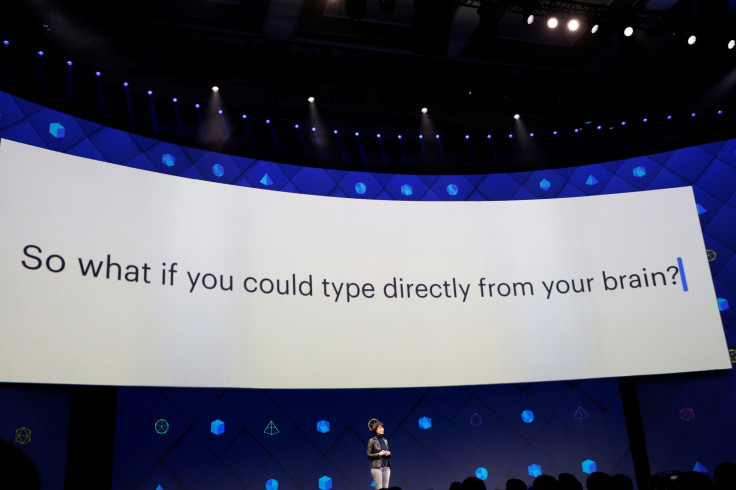Facebook developing tech to let you type with your brain and 'hear with your skin'
"It sounds impossible, but its closer than you may realise," Dugan said.

Facebook is working on ambitious new technology that will let you type words directly from your brain and even "hear" through your skin. During day 2 of its annual F8 developer conference, the social media giant announced that it has a team of over 60 people working on a computer interface powered by the human brain.
Regina Dugan, head of Facebook's secretive hardware R&D division Building 8 discussed the revolutionary projects in the works during a speech at F8 in San Jose, California. Dugan, who has previously worked at Google, Motorola and Darpa, was hired by Facebook last year to lead Building 8.
"What if you could type directly from your brain? It sounds impossible, but it's closer than you may realise," Dugan said.
In a video demo, Dugan showcased a few examples including a woman with ALS who is able to type eight words per minute directly using her brain via an implanted sensor. Dugan says Facebook hopes to do the same without surgical implants.
Facebook aims to create a system that allows people to type 100 words per minute, five times faster than typing on one's smartphone, using just your brain.
"Just as you take many photos and decide to share some of them, so too, you have many thoughts and decide to share some of them in the form of the spoken word," Dugan said. "It is these words, words that you have already decided to send to the speech centre of your brain that we seek to turn into text. And unlike other approaches, ours will be focused on developing a non-invasive system that could one day become a speech prosthetic for people with communication disorders or a new means for input to AR."
Dugan said the team expects to demonstrate such a real-time silent speech system in a few years' time - "one with all the speed and flexibility of voice, but with the privacy of text".
Such technology would take advantage of the human brain's computing power, capable of streaming 40 HD movies every second.
When thinking of an item such as a cup, the human brain does not think in text such as "C-U-P", but the idea and use of the object itself. Dugan says the same technology could potentially be used to read that thought and share it in any language you choose.
"Understanding semantics means that one day you may be able to choose to share your thoughts independent of language. English, Spanish or Mandarin - they become the same," Dugan said.
However, Dugan emphasised that they are not discussing decoding one's random thoughts, but thoughts that people would actually like, much like the photos they decide to share online.
"That may be more than any of us care to know," she emphasised. "And it's not something any of us should have a right to know."

Dugan also highlighted another innovative piece of technology currently in the works at Building 8 involving touch and the ability to "hear through your skin".
This technology uses the "Tadoma method", developed based on the experience of Helen Keller.
She highlighted a video showing a Facebook engineer wearing a special sleeve featuring a system of actuators that lets her feel "the acoustic shape of a word on her arm". Dugan said the engineer currently has a "tactile vocabulary" of about nine words that she learned in less than an hour.
"If we put these two things together, one day not so far away, it may be possible for me to think in Mandarin and for you to feel it instantly in Spanish," Dugan said. "Imagine the power such a capability would give to the 780 million people around the world who cannot read or write — but who can surely think and feel."
She reiterated that these technologies are still a few years away.
CEO Mark Zuckerberg says the company wants to eventually turn the brain typing technology into a wearable that can be manufactured at scale.
"Even a simply yes/no "brain click" would help make things like augmented reality feel much more natural," he wrote in a Facebook post. "Technology is going to get a lot more advanced before we can share a pure thought or feeling, but this is a first step."
© Copyright IBTimes 2024. All rights reserved.





